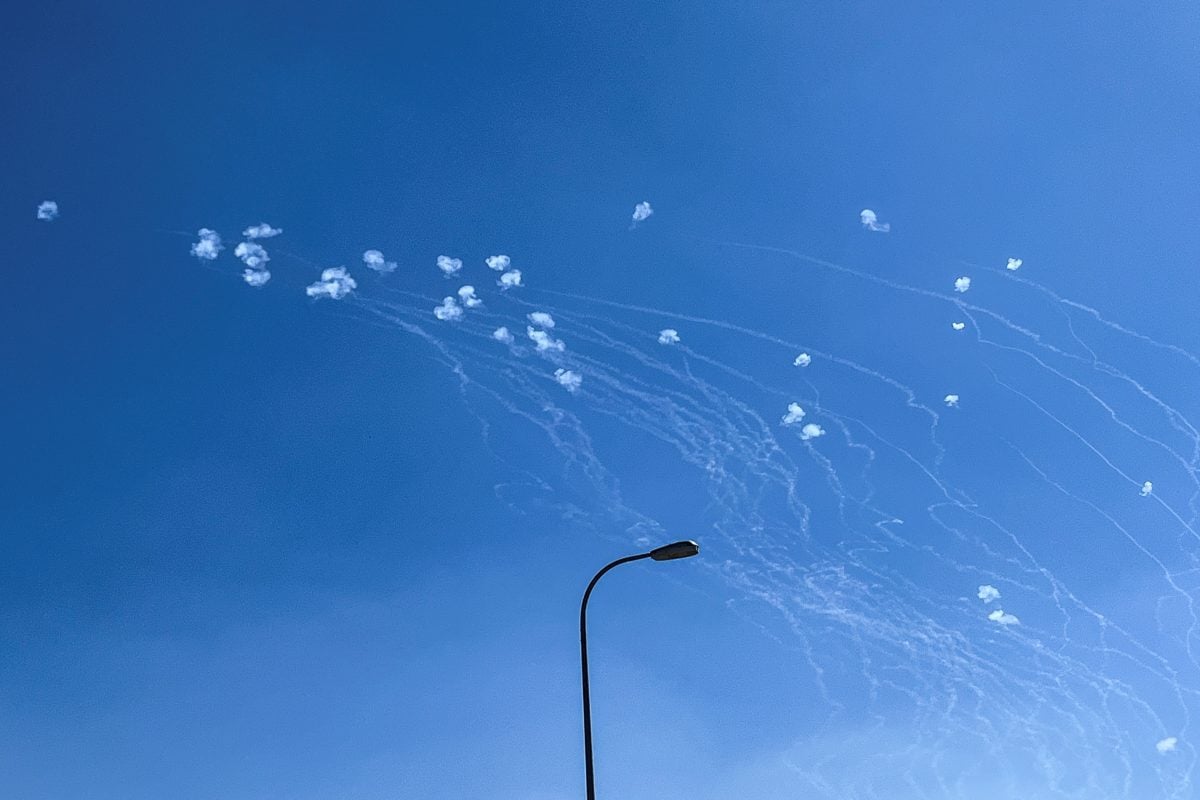BEIRUT/JERUSALEM, (Reuters) – Israel widened its airstrikes in Lebanon today and shot down a missile that armed group Hezbollah fired at Tel Aviv, further intensifying the conflict between the two arch-foes.
Hezbollah claimed to have targeted the headquarters of the Mossad spy agency in Tel Aviv, Israel’s economic capital, with what it described as a ballistic missile. Reuters could not independently confirm the type of rocket fired.
World leaders meanwhile expressed concern that the conflict – running in parallel to Israel’s war in Gaza against Hamas – was rapidly intensifying as the death toll in Lebanon rose.
The Israeli military has mounted its heaviest airstrikes in nearly two decades this week, targeting Hezbollah leaders and hitting hundreds of sites deep inside Lebanon while Hezbollah has fired barrages of rockets into Israel.
Hundreds of thousands of Lebanese have fled their homes and hospitals have filled with the wounded since a sharp intensification of bombing on Monday, when more than 550 people were killed in Lebanon’s deadliest day since the end of a 1975-1990 civil war.
There was no let up on Wednesday. Israel said its warplanes were carrying out extensive strikes in south Lebanon and the Bekaa Valley, a Hezbollah stronghold further north.
The Iran-backed Hezbollah said in a statement it had fired a missile on Wednesday morning targeting the Mossad headquarters “in support of our steadfast Palestinian people in the Gaza Strip…and in defence of Lebanon and its people”.
The Israeli military said a single surface-to-surface missile was intercepted by air defence systems after it was detected crossing from Lebanon. Spokesman Nadav Shoshani said he could not confirm what Hezbollah’s target was when it fired the missile from a village in Lebanon.
“The result was a heavy missile, going towards Tel Aviv, towards civilian areas in Tel Aviv. The Mossad headquarters is not in that area,” he said.
Warning sirens sounded in Tel Aviv and elsewhere in central Israel but there were no reports of damage or casualties.
The strike was the first time since the beginning of the war that a Hezbollah missile had been sighted above Tel Aviv, seen as a target with the potential to trigger an escalation in Israeli action.
Hezbollah blamed Mossad for assassinations of its leaders.
It has also accused the spy agency of carrying out an operation last week in which booby-trappedpagers and radios of Hezbollah members exploded, killing 39 people and wounding nearly 3,000. Israel has neither confirmed nor denied involvement.
At least 23 people were killed and around 50 wounded in Israeli strikes across Lebanon on Wednesday at five different locations, according to a Reuters compilation of Lebanese health ministry statements.
Israel has expanded the zones it has been striking since Tuesday night, with attacks for the first time on the beach resort town of Jiyyeh just south of Beirut and Maaysrah.
The strikes also took place in Bint Jbeil, Tebnin and Ain Qana in the south, the village of Joun in the Chouf district near the southern city of Sidon, and Maaysrah in northern Keserwan district.
Hezbollah’s Al-Manar TV said that one of its cameramen, Kamel Karaki, had been killed in an Israeli airstirke on southern Lebanon. He is the fifth reporter to be killed by Israeli bombardment on Lebanon, following 3 journalists from pan-Arab al-Mayadeen and Reuters visuals journalist Issam Abdallah.
As many as half a million people may have been displaced in Lebanon, the country’s foreign minister said.
In Beirut, thousands of displaced people who fled from southern Lebanon were sheltering in schools and other buildings.
More than 60 people were evacuated by the Lebanese Army early on Wednesday from the Christian town of Alma Chaab, along the border with Israel, following intense strikes overnight.
“At least two houses were completely destroyed but thankfully they were empty and we had no deaths,” said Milad Eid, a resident of the town.
Israeli authorities said the Galilee region of northern Israel was hit by heavy Hezbollah barrages on Wednesday morning.
In one salvo about 40 rockets were fired. Some were intercepted in mid-air, others struck open areas or penetrated air defences into populated areas, they said.
In the Israeli town of Safed, an assisted living facility was hit but no injuries were reported, the authorities said.
Near-daily exchanges of fire in the Israel-Lebanon border area started after war broke out last October between Israel and the Palestinian militant group Hamas in the Gaza Strip on Israel’s southern border, with Hezbollah saying it was acting in solidarity with its ally Hamas.
Israel’s focus has now turned to its northern frontier and southern Lebanon.
Tens of thousands of Israelis have been evacuated from their homes near the border with Lebanon, and the government has made their safe return an aim of the war, setting the stage for a long conflict while Hezbollah has said it won’t back down until the Gaza war ends.
Since Monday morning, the Israeli offensive has killed 569 people, including 50 children, and wounded 1,835 in Lebanon, Health Minister Firass Abiad told Al Jazeera Mubasher TV.
Pope Francis called the Israeli strikes a “terrible escalation” of the Middle East conflict, while British Prime Minister Keir Starmer and U.N. Secretary General Antonio Guterres were among global dignitaries who said the escalation in fighting was pushing the region towards the brink.
Israeli troops have been training for months for a possible ground operation inside Lebanon.

